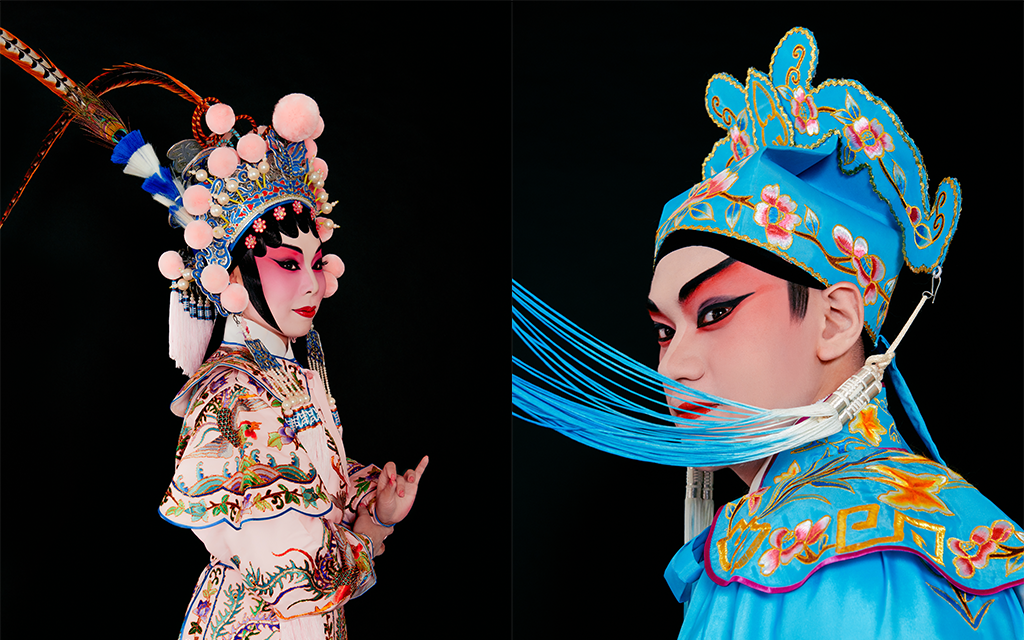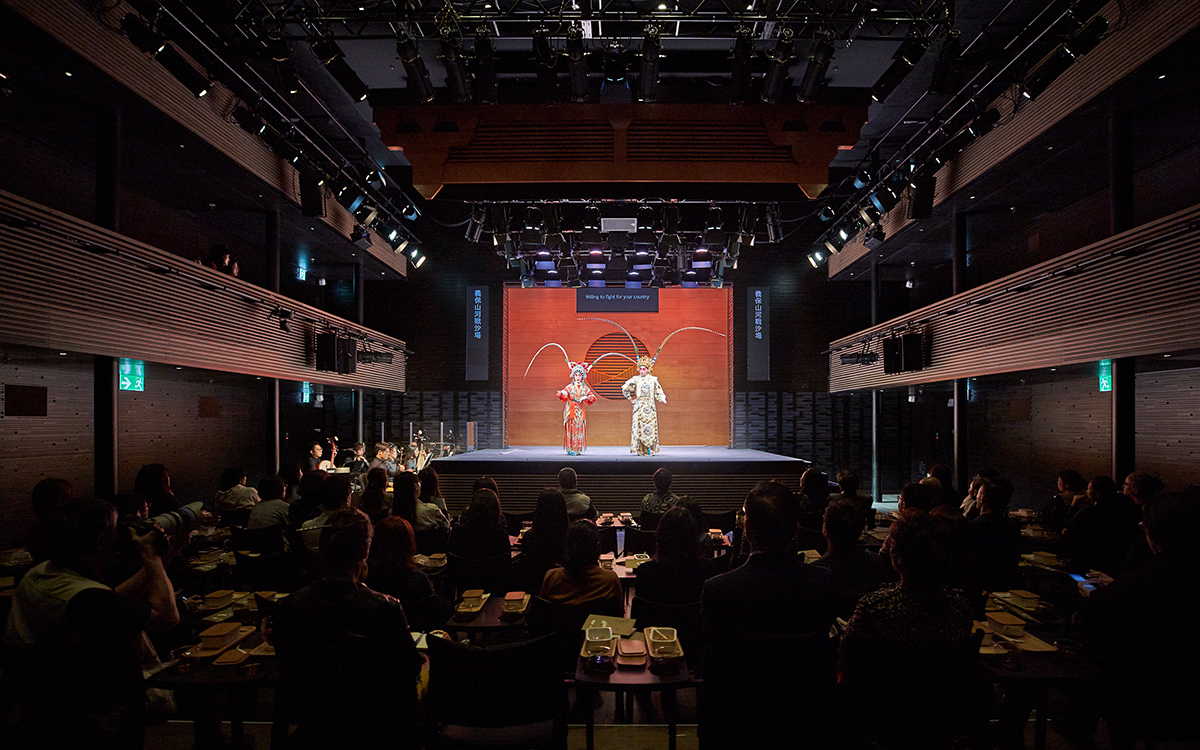City Magazine-1.12.2019
However valuable cultural heritage might be, it can only be preserved if there are people who appreciate it. In the early 20th century, visiting a tea house to enjoy tea and dim sum and watch Cantonese opera was a popular pastime in China. To help promote this heritage art form, it was planned that the Xiqu Centre would also incorporate a Tea House Theatre, where a resident troupe of young actors would perform in a traditional setting to engage audiences in a more personal way. Since the opening of the Xiqu Centre, the Tea House Theatre has presented over a hundred performances, a sign of the team’s commitment to revitalising the art form.
If you think of Cantonese opera as an old-fashioned art form, you may be pleasantly surprised by the Tea House Theatre, where the performers on stage are youthful and lively. Cantonese opera was added to the UNESCO Representative List of Intangible Cultural Heritage in 2009. To help promote the traditional art, the Tea House Theatre was conceived as a place for nurturing both young Cantonese opera actors and new audiences. To this end, promising young artists were brought together to form the Tea House Rising Stars Troupe – the Xiqu Centre’s resident troupe of performers and musicians.
Naomi Chung, West Kowloon’s Head of Xiqu and the producer of the Tea House Theatre said, “When the theatre was first conceived, I knew we had to introduce a new way of enjoying Chinese opera – something that Hong Kong audiences had not experienced before. Having travelled to places like Beijing, Hangzhou, Guangzhou and Macau, and experienced their tea house culture, I came up with the idea of The Tea House Theatre, where the audience can enjoy traditional tea and experience a taste of Cantonese opera.” Assuming that audiences would mostly be new to Chinese opera, the team decided to condense a traditional three-hour show into a 90-minute “Tea House Theatre Experience”. The specially devised programme includes an introduction to the history of Cantonese opera, excerpts sung in archaic Mandarin, examples of nanyin, Cantonese opera songs and music, as well as Cantonese opera excerpt performances that give newcomers a sense of the scope of this traditional culture.
Passing on a heritage art form involves more than just engaging audiences, you also have to develop new talent. This is the aim of the Tea House Rising Stars Troupe, which brings together young musicians and actors who are passionate about Cantonese opera and hoping to build a career in the industry. For two of the troupe members, Alan Tam Wing-lun and Chan Kei-ting, being part of a resident troupe allows them to practice regularly with other young actors in a more open and relaxed atmosphere – a luxury in itself. “In traditional Cantonese opera troupes, we might be too shy to consult senior performers. But here, we’re all of a similar age, and we always discuss how we can improve our performance. I would say we’re a group of young people pursuing our dreams together,” said Alan Tam.
To help the young stars improve and broaden their skills, all of the actors in the troupe must be familiar with the different roles in the repertoire. For example, over the course of a season, Alan Tam will take on different roles in the excerpt performances, as well as singing nanyin ballads and songs in the ancient dialect. Playing multiple roles helps him gain experience and increase his flexibility as an actor. But having different partners in two-person excerpts can be difficult, as Chan Kei-ting has found. Working opposite different teammates and adjusting to their personalities can be an issue on stage. “Every actor has a unique character and style. One might be restrained, the other more lively. Knowing how to respond appropriately is an interesting challenge.” Naomi Chung added, “We don’t want our actors to focus on playing just one particular role type. If they can handle any role, and work with any fellow actor, this is a truly valuable skill.”
Since the opening of the Xiqu Centre, the Tea House Theatre has staged over one hundred shows. But how has this new theatre experience been received? Naomi Chung said the theatre aims to provide an introduction to Cantonese opera for young audiences and foreign visitors who have never experienced a Chinese opera performance. The 90 percent attendance rate certainly indicates that this aim has been fulfilled. For Chung, another measure of the theatre’s success in passing on the heritage art form is seeing the progress and growth of the Tea House Rising Stars Troupe: “Our main aim is to help keep this heritage culture alive.”




